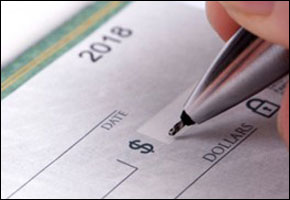 It’s a common situation. Your dad realizes he’s not getting any younger, so he adds your name to his bank account “just in case.” Or mom offhandedly tells you she “put you on [her] annuity,” though your name’s not on the statements. Maybe Mom’s not as sharp as she once was, and after requesting copies of her statements and faxing over your power of attorney as they asked, you find your name added to the account. Perhaps a decade ago your parents put away some college spending money for your son, and you’re listed as “Custodian under UTMA” on the bank statements.
It’s a common situation. Your dad realizes he’s not getting any younger, so he adds your name to his bank account “just in case.” Or mom offhandedly tells you she “put you on [her] annuity,” though your name’s not on the statements. Maybe Mom’s not as sharp as she once was, and after requesting copies of her statements and faxing over your power of attorney as they asked, you find your name added to the account. Perhaps a decade ago your parents put away some college spending money for your son, and you’re listed as “Custodian under UTMA” on the bank statements.
If you have elderly parents, it’s likely you’ve come across one or more of these scenarios, and they tend to bring with them a bunch of questions, like:
- Does that mean it’s my money? Does half this interest go on my taxes now? Does all of it?
- Can I take out money if I want to?
- Does this mean I have to do anything? Will I get in trouble if I leave things as they are?
- Is this a gift? Can I take out money if I want to?
- What happens when they pass away? Can I just withdraw the money, or does it have to go through probate, or what?
The answers are fairly easy, yet it is a subject on which even veteran accountants and policy reps get their wires crossed. However, if you understand which of the three reasons has placed your name within your parent’s records, it’s easy to understand what is actually going on.
